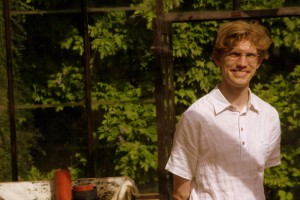by Oliver Robertson
If asked “Why am I a Quaker, how am I a Quaker?â€, this is what I can say. That when the answers to these two questions are the same and when I live out my Quaker values all the time and not just on Sunday morning, then I am all the better for it. There is the benefit that being a Friend brings me, a spiritual support and peace and joy that is strengthened through the work I do.
My name is Oliver Robertson and I work for you. I’m not a politician; rather I used to be and now am again an employee of the Quaker United Nations Office (QUNO) in Geneva. There I spend most of my time focused on children of prisoners, the kids whose mums and dads are put in jail. Such children, separated from their parents by the state, have to adjust to a new life, with many moving home, changing school or having new carers and guardians. They may have to cope with the stigma of the crime, becoming tainted by association with a criminal (or suspected criminal). Many have to deal with the new reality of seeing a parent in prison, often travelling a long way for a short visit of an hour or less. And they will have to cope with the release and reintegration of the imprisoned parent, a reunion that is often much harder than imagined.
It is important to remember that each child will deal with parental imprisonment differently and that for some it will be a positive development. But good or bad (and it does seem to be generally bad) their situation and needs are almost completely ignored by officials at every stage of the criminal justice process. They are the forgotten victims of crime.
At QUNO we are steadfast in insisting that the best interests of these children, and all other children, should be a primary consideration in all matters that concern them. But we do not presume to know precisely what the best interests of each child are or to say what exactly should happen to the children of prisoners. Indeed, working internationally you realise that one size doesn’t always fit all, that the variety in nations’ ideas about childhood and imprisonment, and their differing resources, make a uniform policy next to impossible. But we do say what the issues are and how different places have dealt with them; lobbying governments and the UN itself through publications, talks and meetings. We are not alone in this – during my work I have met Quakers and others working on these issues practically, politically and academically – but we are pretty well alone in raising it at the UN.
That’s important and a key feature of Quaker work: highlighting issues that others have ignored, making an effort to see the forgotten wrongs and make sure nobody is left behind. There are other areas, such as child soldiers, where QUNO has pioneered and trailblazed, only to lay down the work when others have taken it up, moving on to another overlooked issue.
I know as well as you do that the declarations and standards we work to create at the UN do nothing by themselves to ease the pain of prisoners’ children. But they can be a useful tool to aid change; this willingness to see the possibilities and use the opportunities available is another feature of Quaker work. This is where I am, this is what I can do.
And what I said about working for you is true and is important. The fact that this is work being done as a Quaker on behalf of Quakers means more to me than if I were just doing it myself. On top of passion it adds duty and obligation, a sense that through this work I am serving my community. A community across space – for QUNO works on behalf of Quakers worldwide – and a community across time, one which has long concerned itself with prisons.
Why do I want to do this work? Why do I want to go out and change the world? Because I am aware that all is not right with it, and I am most aware of this when I am deepest in worship. From that spiritual depth comes a deep uneasiness with how things are, and how can I rest when I know that others cannot? My faith both viscerally awakens me to the problems our world faces and gives me the strength to try and do my bit to heal it.
This talk was delivered at Britain Yearly Meeting in May 2010.
